November nothings
Politics sucks and is senseless. But also, politics matters. How I'm finding solid ground when everything feels lost.
Get up and go—as much as I can this month, I’m going for walks. Snow’s coming soon, and I’m a hibernating creature. Not even a threshold of tolerance is what I have for the snowy season. My blood freezes, my body shakes, I lose my voice, and even with a hat and sunglasses, the bright white strains my eyes. And no, I’m not kidding.
Is cold intolerance normal? I never liked being in the cold, but the older I get, the less it feels like a preference. There’s no medical reason to explain it (I’ve checked). I guess it’s just getting older. I guess it’s just another thing I can’t stand but have to get used to.
So right now, I’m taking in the soft blue skies and crisp air winnowing through the beige and brown dormant foliage, reminding me how alive the world still is. The absent sound of the chattering leaves suddenly gone feels especially comforting this post-election week as I’m trying to get used to another thing I can’t stand and can’t understand. But still, I can’t stop the whirring in my head wondering why.
I’m also wondering why there was no great honor given to VP Kamala Harris for having so graciously conceded. We didn’t get a concession in 2020, and we might not in 2028. Plus, she deserves massive kudos for jumping in, getting instantly up to speed, and persisting amid escalating, deeply personal and degrading rhetoric directed at her. Who will be willing to go through that next time?
Please click away if you’re no mood for election or political talk of any kind. I get that.
I went to bed election night feeling nauseatingly optimistic. I woke up with a song that’s been in my head ever since: “Great big globs of greasy grimy gopher guts, mutilated monkey mutts” — that’s all I can remember besides the spoon part at the end.
The election results felt visceral, like my insides were pulled apart. My eyes hurt, and my body ached. Every dehumanizing insult from the past nearly decadelong MAGA movement felt dumped on all at once in an unmattering way.
After glimmers of hope and progress, the thought of going back feels downright devastating. I know those thoughts are painfully felt by different people in different ways on so many levels and through so many layers. Just as much, I know many people feel comforted, hopeful, or indifferent about the outcome. How can those thoughts be held together?
I was HOPEful Harris would win. My oldest son and first-time voter canvassed for Harris, going door-to-door. I loved seeing all the youthful energy. But TikTokers, not door knockers, were how voters were found. And yeah, volunteers went there too, but how many volunteers would you need to make any bit of difference in that space?
I don’t know why I was surprised. You’d think I would know he had buy-in. People I know and love bought in again and again so why not again?
There have always been certain men who get a free pass. They’re everywhere and in every group and were around long before the days of Mad Men. Men either have “it” or they don’t. Bill Clinton had it. Al Gore didn’t. Most men don’t.
That “it” factor is there in President-elect Donald Trump, but there’s mysteriously more. He has an unfathomable martyrdom and tabloid magnetism that’s kept the flame flickering long enough for new permission structures to form around him, making him the “less-worse” choice by enough peoples to gather a majority of votes (or 49.99% according to the latest vote tracker).
If it were fiction, it would be nothing but fascinating. Instead, I feel sick.
The fear is real
I fear a return to when speaking up never did any good—about anything and in any setting. When you had to hide or come out at your peril. When you didn’t ask or tell—and would never dare challenge. Speaking up would only bring blame your way and they’d never be held accountable. Fear like that, along with a fear of retribution and humiliation, is incomprehensibly dangerous. For everyone and every institution. I’m very worried.
My guttural reaction to this election had nothing to do with politics, and I know I’m not alone—for lots of reasons.
My first reaction was remembering how it felt to be groped by a random stranger who also felt he had the right to “grab ‘em by the ____.” My next was remembering how it felt to be called “nasty,” giving others a free pass to do as they pleased. I physically felt sick for days. I had weird aches and numbness, itchy, fiery skin, and a restlessness.
“I’m sorry that sinful men hurt you,” people in my family who voted for Trump tell me.
“But you don’t understand!” I snapped back. “It’s not about them. It’s easier to forgive a person. I did that long ago.” The culture that normalized (even celebrated) sexual assault and harassment while shame-blaming the victims was way more upsetting—and scary—than individual people.
I know the outcome of this election feels horrific to so many people in ways that are ever-present and threatening in their lives right now.
Hearing people in my Catholic family say, “I didn’t vote for him. I voted on the issues,” only makes me feel more disturbed, knowing their issues aligned with the Project 2025’s solutions for solving social ills. No, this isn’t partisan. This is personal. My daughter is not a social ill. My mama bear instincts over my bright and beautiful daughter and her lovely girlfriend were ramped up for days. And I worry about them.
I’ve ordered a turkey but I’m in no harvest heart-of-the-home place. Family can sometimes feel least homey place of all. But there’s a familiarity to that too. And I know I’m also not alone in feeling that either.
Dad’s a Dem. Mom moved to the religious right.

Political divisions in my family are part and parcel of an us-versus-them divide.
As first-time voters in 1972, my parents were on the same side, both supporting McGovern, the Democratic candidate. With two tots in tow they helped drive people to the polls. But just four years later they diverged and stayed on opposite sides of the political spectrum ever after.
Dad was a poly-sci college-educated liberal, casting his last vote for Obama a month before he died. Mom was a non-college grad Reagan Democrat who has increasingly become conservative Catholic. That diploma divide seems to have grown ever since, ironically becoming more salient just as the value of a college diploma is plummeting, or at least that’s the perception by a growing number of Americans.
What’s with that? Why does it matter if someone went to college? And why am I missing my dad right now? I’m trying to remind myself how strong the pull is to being on the same “side” as people you love or identify with. And if I’m honest with myself, I can imagine voting for either side.
Like every other election, the outcome of this one was just as much about identity politics. But identities are complicated, numerous, and in some cases fluid.
I first voted for president as a college freshman in 1992. I was fiercely on my mom’s side in our “us vs. them” family, so my vote was predetermined. I would vote for Bush. It was a non-decision that was easy to rationalize. And, if my mom supported Clinton, I would’ve defended him too. And, voting for him would’ve also been an easy case to make. The same people I shared sides with then are on Trump’s side now.
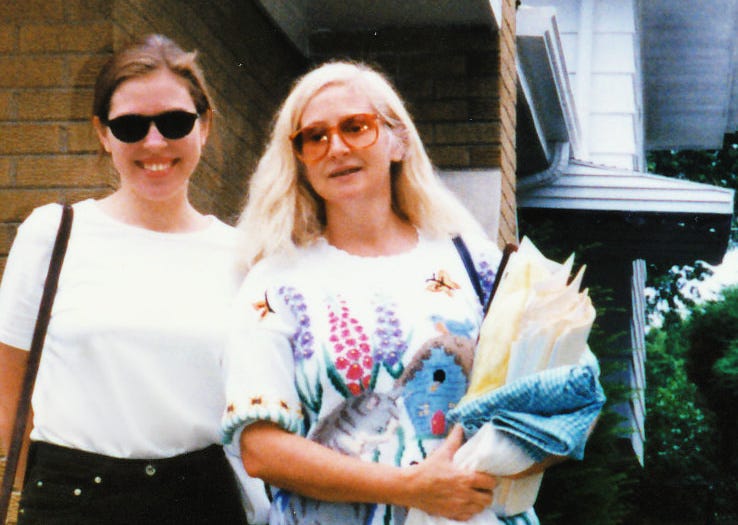
The diploma divide
I know the diploma divide has something to do with the “What, you think your shit don’t stink?” I grew up hearing on my mom’s side.
As the only one of the four siblings in our family who has a college degree, I realize I’ve unknowingly done things over the years that fed into the division. I’m sure some “helpful advice” sounded more like a lecture-y pompous person touting the importance of “good choices” to people who have fewer.
Likewise, I’ve rethought the “just go to college” mantra of the past few decades which overlooked many practical barriers and gave too few alternate paths. Meanwhile, the degree of parental support young adults need to become even somewhat securely settled on their own has only grown, further deepening the diploma divide. What can be more classist than that?
I’m rethinking other things too, like who the hell wants to be around an annoying grammar girl? It’s not just the words that count—tone matters too. The wrong tone can be way more doubly negative than any words in a sentence.
Reconnecting with my oldest brother Patrick after our dad died brought into full view the unfair differences in stability and health that having a college degree made—just within one generation of one family.
College “smartness” was overinflated from the start. How could people who work in front of screens be more “skilled” and less replaceable? C’mon, really? But worse than silly, it disrespected people and their important contributions that everyone benefited from.
Even after Dad died, Patrick was still on Dad’s side—pro-union, pro-Democrat and very pro-Obama. Dad never got over Ford pardoning Nixon. And Dad had a nit-pickiness for precise financial accounting. Trump for sure would’ve made Dad’s blood boil. Perhaps that’s why Patrick chose none of the above when the electorate started shuffling around in the mid-2010s.
But who knows, if Patrick were still living, maybe he would’ve turned to Trump this year. And no, not because he had a problem supporting women. Personally, I know more women who are hesitant about voting for a woman based on gender alone.
Spinning “they them”
There’s no single narrative for anything. But politics is all about simple narratives.
The first rule of politics I learned as a new nineties voter was the saying, “Perception matters more than reality.” The side that could spin reality in their favor won.
The second rule of politics I learned was that blaming “they them” is a quick and dirty way to get people to identify with your side. It makes you wonder if a culture of kindness where everyone is welcome is even possible.
People in my family think my reaction to the election is being a petty, partisan person. But I’m not particularly partisan. I learned that wasn’t for me long ago, like in 1996 when I volunteered for the Dole campaign.
Naively, I was surprised hearing my fellow volunteers harp about keeping every damn cent of their hard-earned money. There was a cold callousness for those with less means, along with a grandiosity that disregarded their own luck and interdependence with everyone else. I still can’t wrap my head around that, and I pray to God it never makes sense to me.
True, these were just a few random conversations. But they also pointed to what would eventually be clear: being fiscally conservative was never wholly about sound governance.
The real-kicker outer came during a debate-watching pizza party. I got the dirtiest of looks for pointing out one moment when Clinton had a stronger argument. Why was that bad? I realized then I don’t want to be in any group where I can’t say out loud something obvious or respectfully share a differing point of view. How is that even good for the group itself?
Despite the distaste for politics, I know politics matters. Politics decides who gets to matter. The problem is getting politics to work in a way that honors the inherent truth that we all do better when everyone matters.
My notes to self, fwiw
I live in a divided community, but even if you’re in the reddest of the red or bluest of the blue county with a 70/30ish divide, it still means a random person who did vote voted by roughly a coin-flip one way or the other. I also work in healthcare and would never, ever think it’s okay to judge someone by how they voted or to make assumptions.
Still, it’s harder with family. It feels personal because everything feels personal with family. When divisions heat up, I’ve been asking myself, “Don’t the people I love deserve the same respect as a co-worker or patient?” My heart says yes, of course. But my head also points out that boundaries in both settings are needed too.
Every time I go out in the world and spend time with people, I feel renewed faith in a culture of kindness and respect. I’m not giving up on that. And I’ve had some productive conversations with some close family. And I’m not giving up on them.
The truth is that I can imagine being on all sorts of sides. Knowing that that’s possible I keep to heart. It’s a place for empathy to grow from. But it’s also a scary reminder of how easily bad things can happen. And it’s another reason why stories need to be told. They don’t need to be formal or fancy or be in written or even word form. They just need to be remembered.
Have the hard conversation when you can. Take the space when you need it. Let your hurt be seen or turned into something new. And help others feel safe to be vulnerable too. Noisy narcissists get all the attention and often set the tone of conversations. But from what I see, most people struggle to feel like they matter and sadly, people are often treated like they don’t.
“Think counterintuitively and creatively,” I tell myself looking ahead. But for now, these are things I can do:
Choose what I do and be careful what I say.
Figure out my own feelings and process them.
Find goodness to support and grow—which is everywhere.
Talk to my three sons about healthy ways to share and feel connected.
Thank God for the goodness of my daughter finding someone so wonderful to share her life with and support them in any way I can.
Teach my kids that it’s not okay to treat other kids differently who come from families that voted differently or are different from theirs in any other way.
Whenever possible, think “and/both” (rather than “either/or”). I find it’s often more possible than thought.
Say it first. I’m not waiting for someone else in the room to say that uncomfortable thing that, importantly, needs to be said.
Don’t forget how vulnerable it feels to be pregnant or in a body capable of becoming pregnant and how important reproductive healthcare is even though I’m no longer of reproductive age.
Stay to the sidelines and out of the spotlight as a way to offer support, but be willing to take the lead when needed or asked.
Turn more to reading fiction, which I started doing a few months ago after turning 50, and wonder why I ever wandered away. It is essential reading.
Listen carefully but choose carefully what and who I listen to.
Stay informed but not hyper-engaged when there’s no actionable measure to take.
Look for counterviews and fresh points of view, including those that may make me uncomfortable.
Seek hand-holding and offer others my hand. It’s okay to feel needy. Everyone needs someone.
Remember, the basics of human nature don’t change much, including my own, ugh.
And importantly, find some space when it feels too much. “Distance is better than drama” is my go-to when I’m overwhelmed.
Check out my story in a new ’ series, Nerdy Notes: “Why I Went Back to my Midwife for Menopause Advice.”
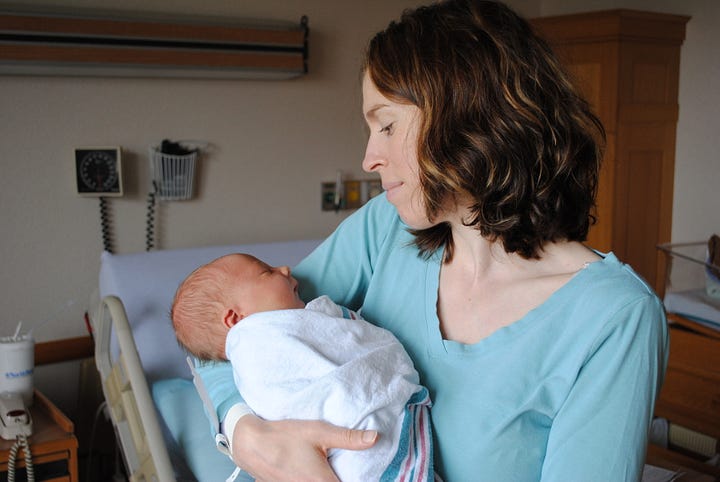
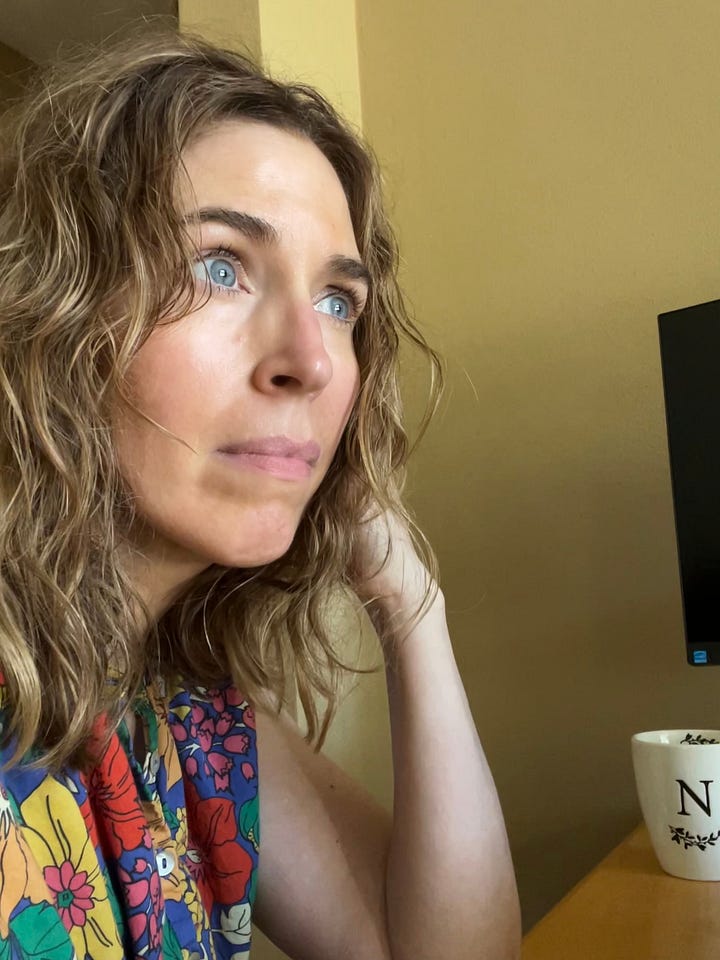
“I was the kind of kid who clung to my mom's leg, reaching for a hand whenever I saw one free. Later, I held hands with kids on my block while playing outside and walking to school with friends. By third grade, I learned I was "too old" for hand-holding. But I didn't listen. Instead, I listened to my friends who came to the States from other parts of the world. They knew that was just an odd American rule. “Friends of any age can hold hands,” they told me. And that felt truer to me.
But sometime around age twelve, I rejected hand-holding. Like the grown women I watched and wanted to grow up and be, I was afraid of seeming “needy” or “clingy.” And no one wanted to be labeled "high maintenance." Women in the 80s and 90s were expected to be upgraded versions of Stepford machines, now self-supporting, multi-tasking, and made-up in a new light, thanks to the new office setting on Conair's lighted make-up mirror. Always forever young and always on schedule — whether the deliverable was a human baby, a sales report, or an orgasm.“
Jill Lepore’s Democrats Tried to Counter Donald Trump’s Viciousness Toward Women with Condescension in The New Yorker is such a good read. Lepore’s description of her mom reminds me of my own that I’m fortunate to still have here with me. And this passage reminds me that no one wants to be told what to feel or think:
“But the parties are now also divided by class and on abortion, and a great deal of Democratic messaging has involved college-educated women telling women who never went to college how to think about their own bodies, or their own very real American dreams.”
Why would we ever assume that all women would share the same views on “women’s issues”—or anything? I’m trying to shift my thinking to a more gender neutral baseline to avoid making assumptions. And I’m trying to reflect on ways that I’m talking or interacting that might feel condescending if my perspective was different.
Respect for differences are important as ever.
I’m never ever giving up on a culture of kindness where everyone is welcome.







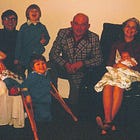
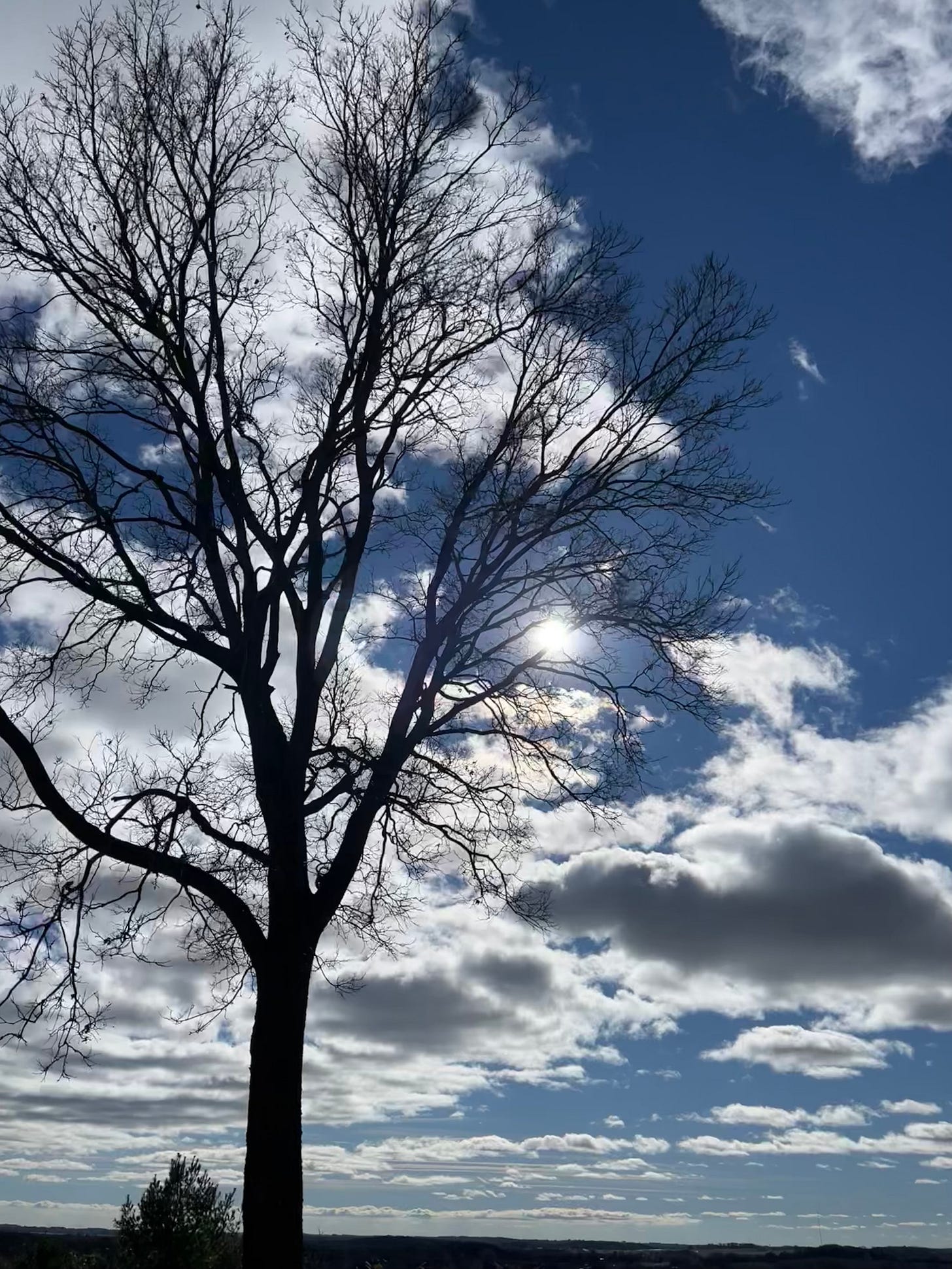
I just came back to Germany after driving through rural Florida, which made me feel even more anxious thinking about the next four years. Your writing helps me lifting the heavy darkness I experience right now. Stepping away from it all from time to time is probably a good advice. Thank you, Daphne!
“I fear a return to when speaking up never did any good—about anything and in any setting. When you had to hide or come out at your peril. When you didn’t ask or tell—and would never dare challenge. Speaking up would only bring blame your way and they’d never be held accountable.” Profound, scary truth Daphne, that so many of us are feeling now. Thank you for this vulnerable share as you speak your truth within the division.